Air travel, while a marvel of modern engineering and convenience, is often a test of patience and decorum. Being in a confined space with strangers for several hours can bring out the best and worst in people.
For Americans, certain behaviors on airplanes have become universally recognized as unacceptable, prompting eye rolls, passive-aggressive sighs, and, in extreme cases, complaints to flight attendants.
Seat Reclining Etiquette
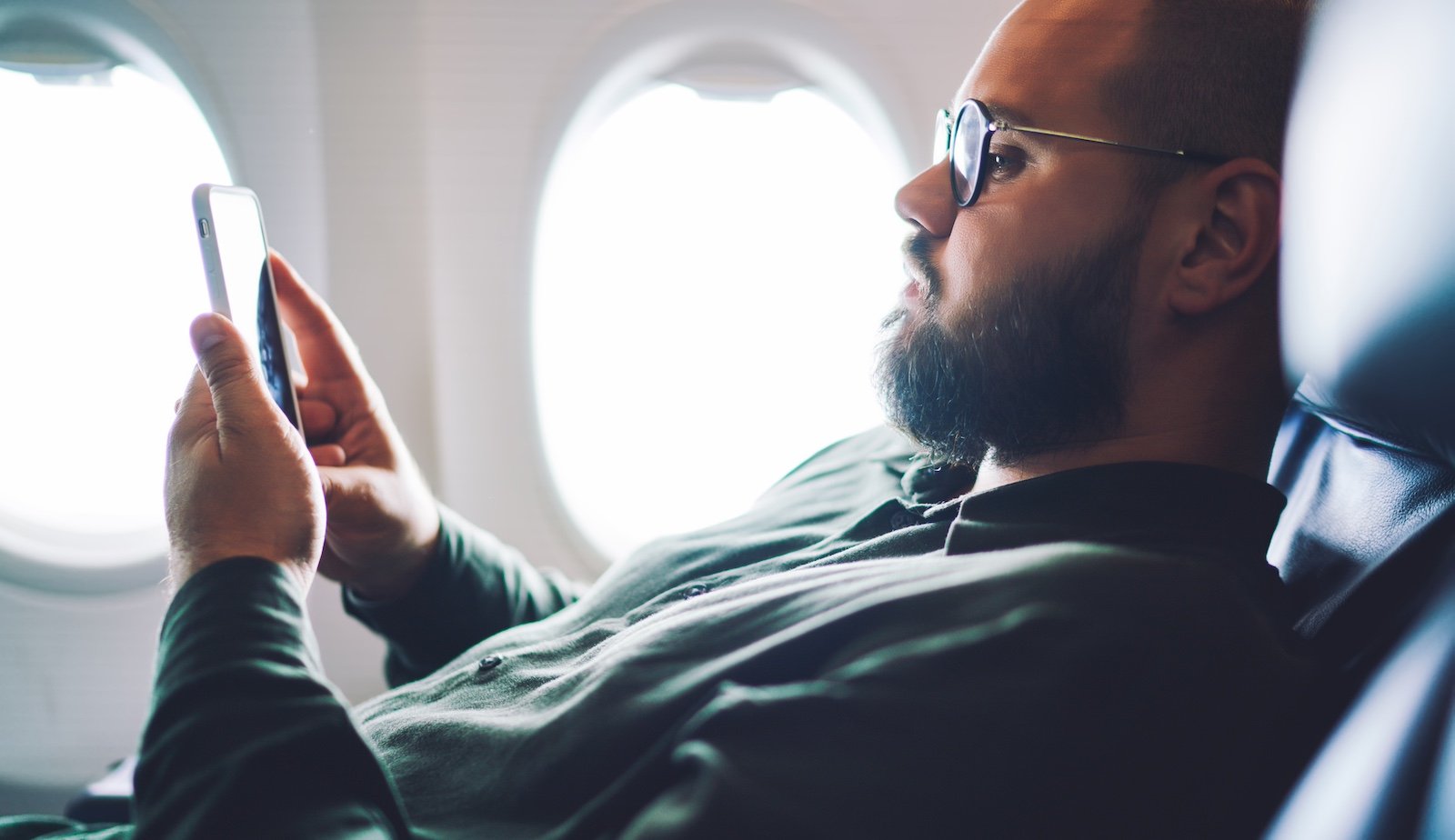
Airplane seats are designed to recline, but doing so in a cramped economy cabin can significantly impact the comfort of the person behind you. Americans have strong opinions about when and how it is appropriate to recline one’s seat. Reclining during meal service or immediately after takeoff can be seen as inconsiderate.
Proper etiquette suggests gently reclining your seat after assessing the situation, such as during long-haul flights when the cabin lights are dimmed and passengers are more likely to sleep. Reclining your seat without checking if the person behind you is using a laptop or has their tray down can lead to frustration and discomfort.
Excessive Drinking
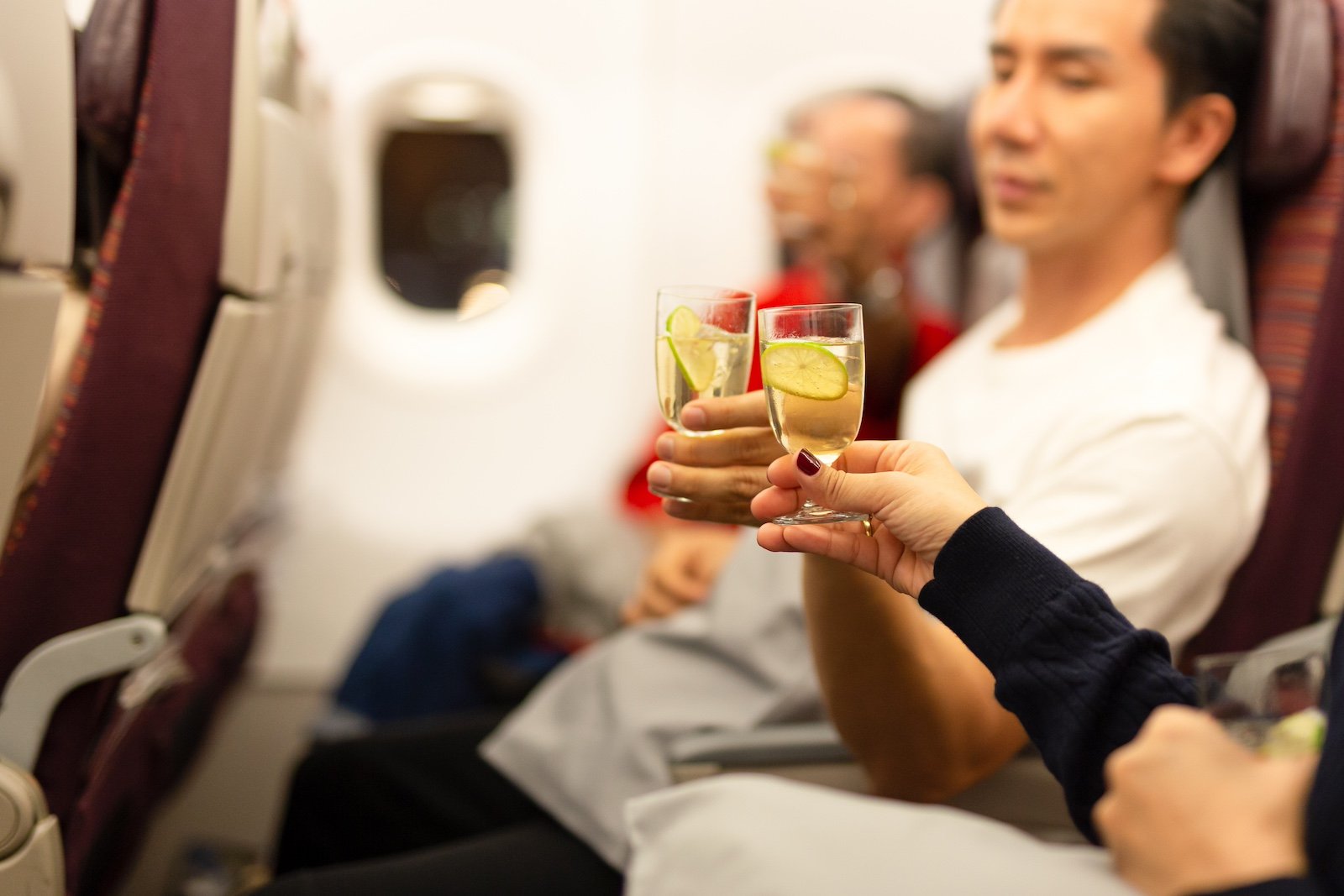
Alcohol consumption on flights is another polarizing topic. While having a drink or two to relax is generally acceptable, excessive drinking can lead to disruptive behavior. Drunk passengers may become loud, obnoxious, and, in worst-case scenarios, aggressive.
For many Americans, dealing with an intoxicated seatmate can turn a pleasant journey into a nightmare. Flight attendants are trained to handle such situations, but it often falls on nearby passengers to endure the immediate inconvenience.
Bare Feet
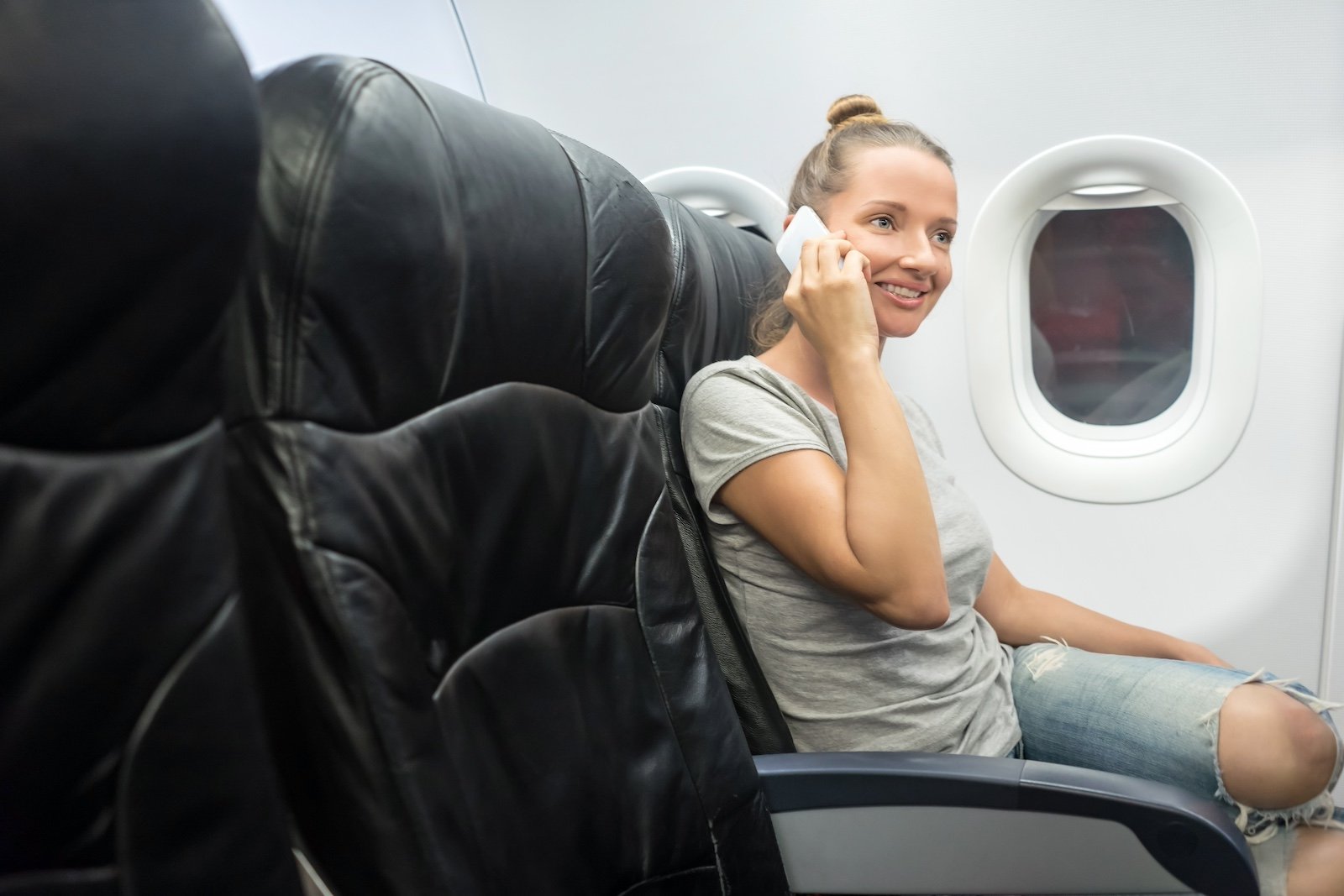
Seeing fellow passengers walking around the cabin with bare feet is a common complaint among American travelers. While it might seem comfortable to kick off your shoes during a long flight, many view this as unhygienic and disrespectful.
Inappropriate Use of Overhead Bins

Passengers who hog overhead bins by placing multiple bags or excessively large items can cause frustration. Proper etiquette involves placing your larger carry-on in the bin while keeping smaller items under the seat in front of you. Some travelers, however, place their items horizontally or use bins far from their assigned seats, complicating the boarding process and inconveniencing others.
Seat Kicking
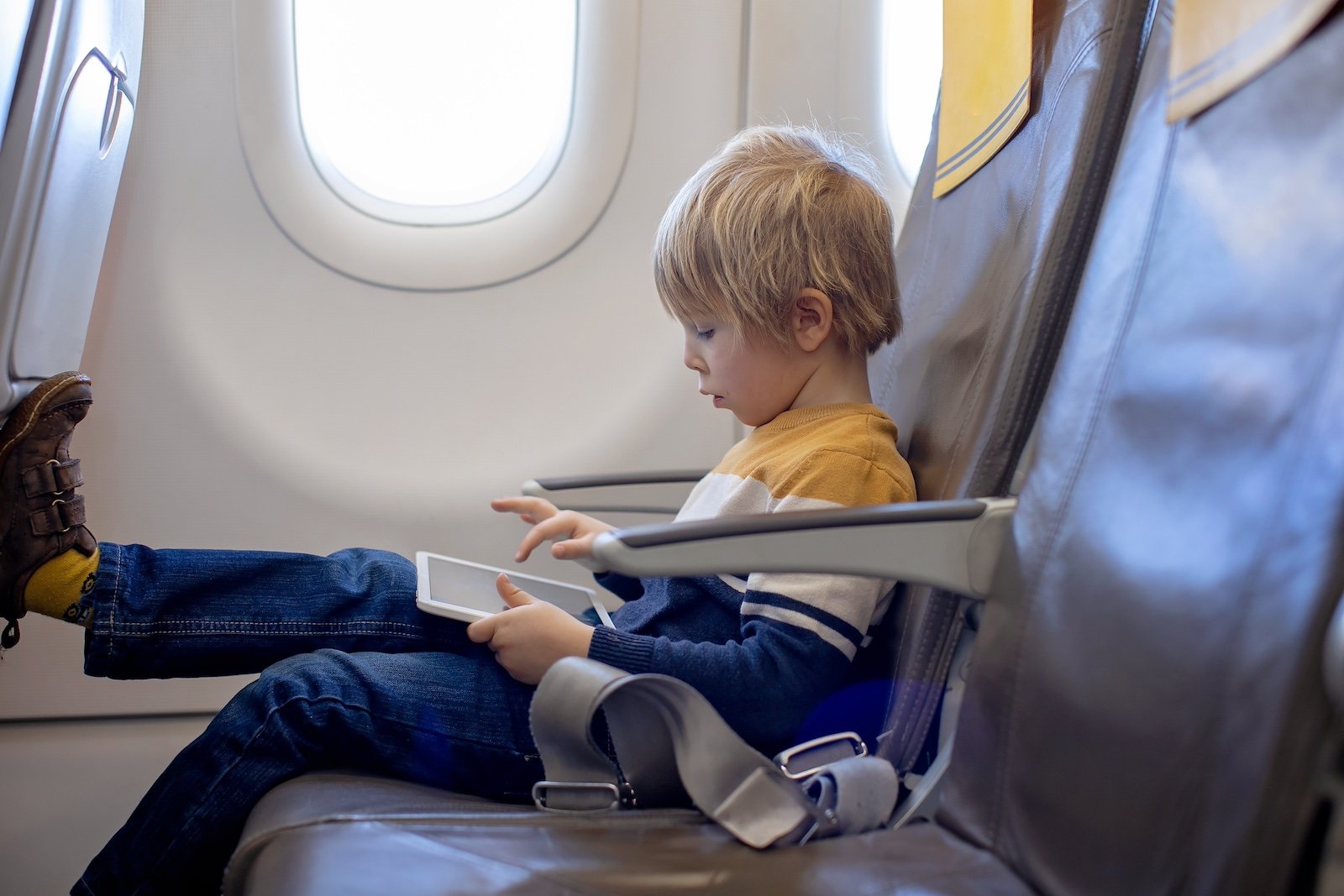
Whether it’s a restless child or an adult constantly jostling their legs, seat kicking is a major annoyance. Parents are encouraged to keep an eye on their children and ensure they are not disturbing those in front of them. Adults should also be mindful of their movements, especially if they are prone to adjusting frequently in their seats.
Loud Talking and Phone Usage

Airplanes can be noisy environments, but excessively loud talking or phone usage exacerbates the issue. Americans generally expect a level of quiet on flights, particularly on early morning or red-eye flights when many passengers are trying to sleep. Using a speakerphone, watching videos without headphones, or speaking loudly can disrupt the peace. It is courteous to use headphones and speak at a lower volume to maintain a pleasant atmosphere for everyone onboard.
Personal Hygiene Neglect
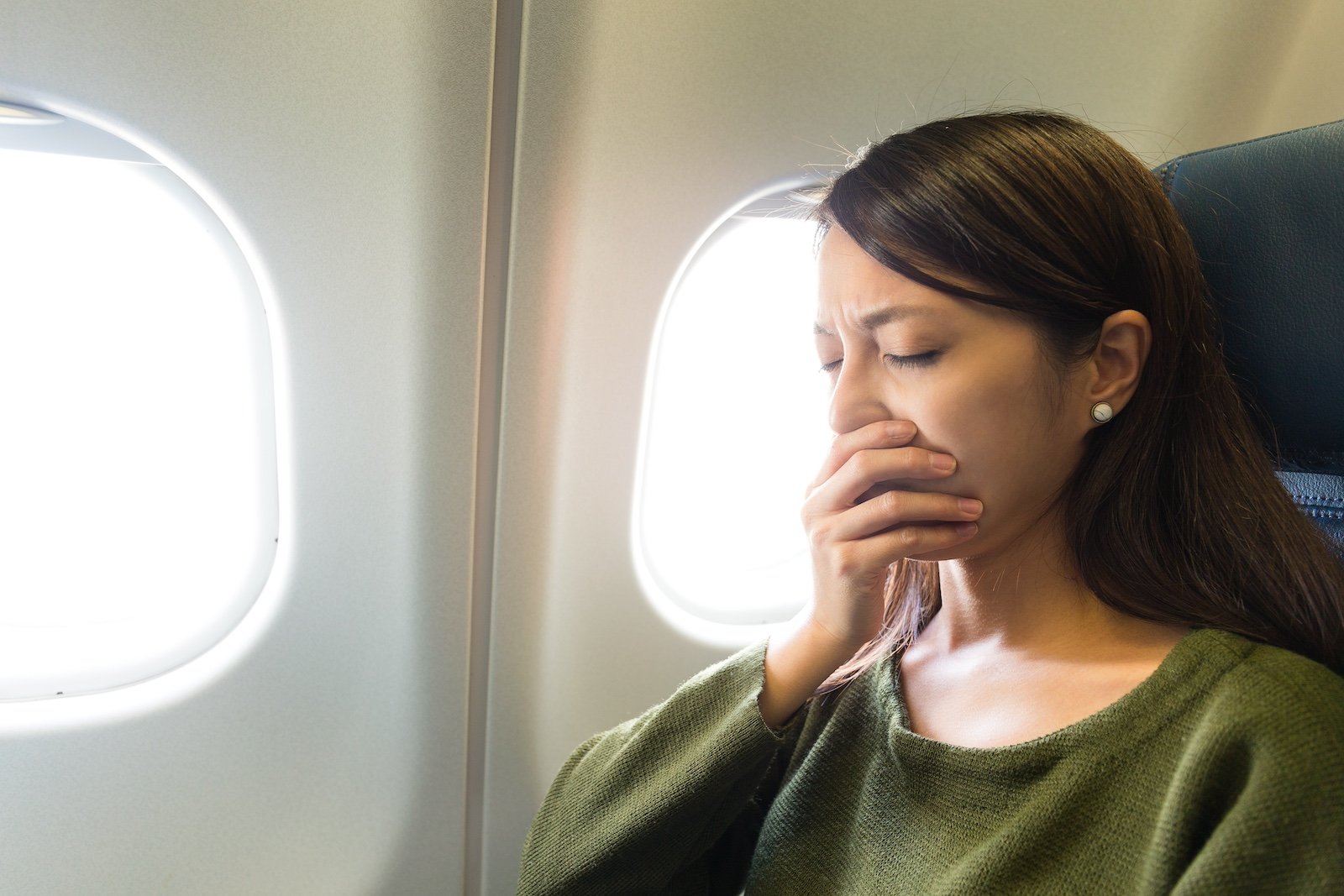
Passengers who board the plane with strong body odor, and overbearing perfume, or who decide to groom themselves mid-flight can make the confined space uncomfortable for others. Good personal hygiene is essential, and passengers should be considerate by ensuring they are clean and presentable before boarding the aircraft.
Armrest Hogging

In a three-seat configuration, the middle seat is generally considered the most uncomfortable. As a result, it is often deemed fair for the middle-seat passenger to have access to both armrests. However, this unspoken rule is not always observed, leading to passive-aggressive tussles for space. Respecting shared armrests can go a long way in ensuring a harmonious flight experience.
Inconsiderate Eating
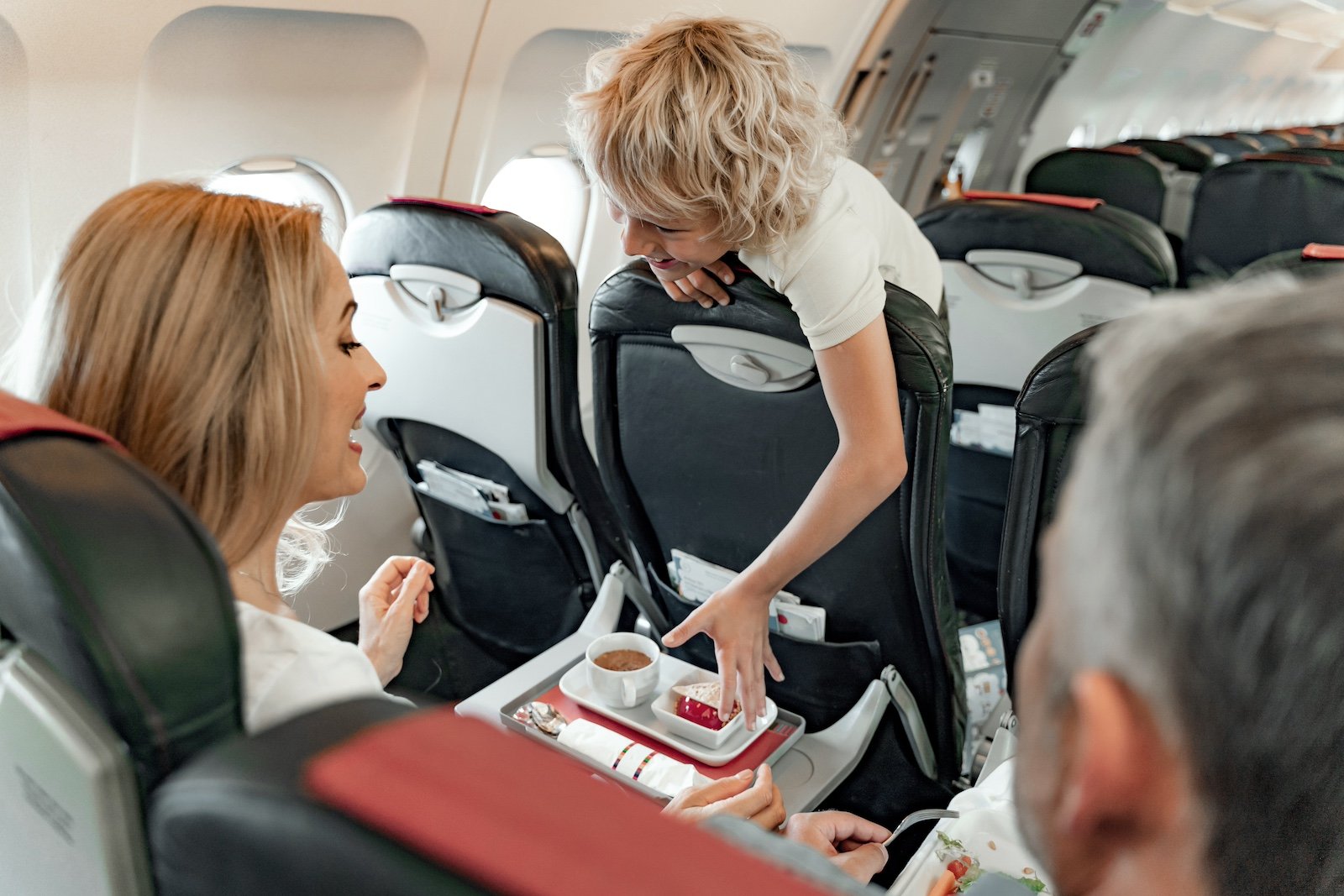
Bringing food on a flight is common, especially for longer journeys. However, the type of food and how it is consumed can cause issues. Strong-smelling foods can permeate the cabin and disturb other passengers. Additionally, loud or messy eating can be unpleasant for those nearby. Passengers should be mindful of their food choices and try to eat in a manner that minimizes disruption to others.
Blocking Aisles

Aisle blocking occurs frequently, especially during boarding and deplaning. Passengers who stop in the middle of the aisle to sort through their belongings or chat with others can cause delays and frustration. Keeping the aisle clear, especially during busy times, is a simple courtesy that can help the boarding process run smoothly. If you need to access your bag or move around, doing so quickly and efficiently shows consideration for fellow travelers.
Ignoring Safety Protocols
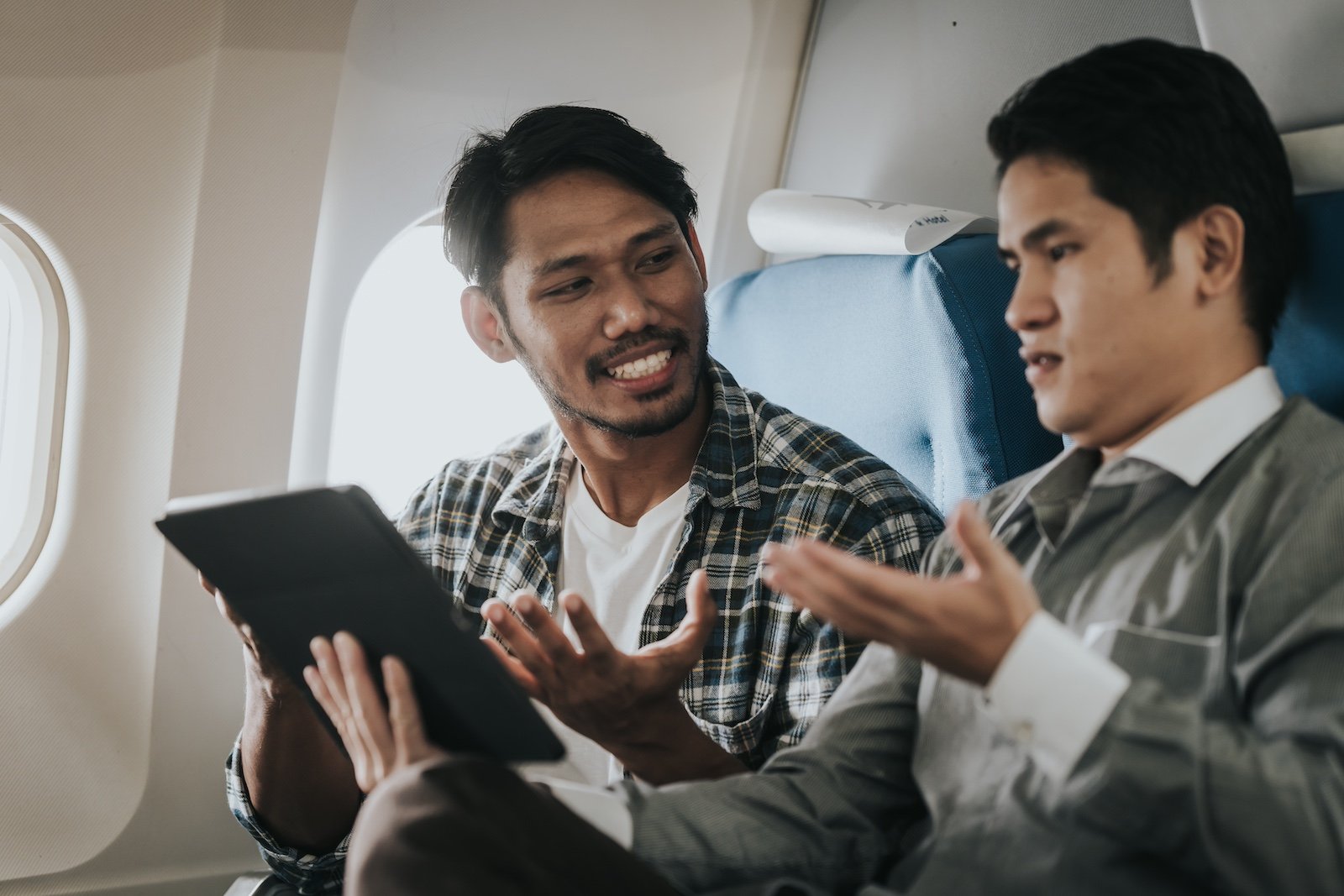
Ignoring safety protocols, such as not wearing a seatbelt when instructed or using electronic devices during takeoff and landing, is not only annoying but also dangerous. Flight attendants are tasked with ensuring passenger safety, and disregarding their instructions can put everyone at risk. Americans generally view compliance with safety protocols as a basic expectation of air travel.
Misbehaving Children
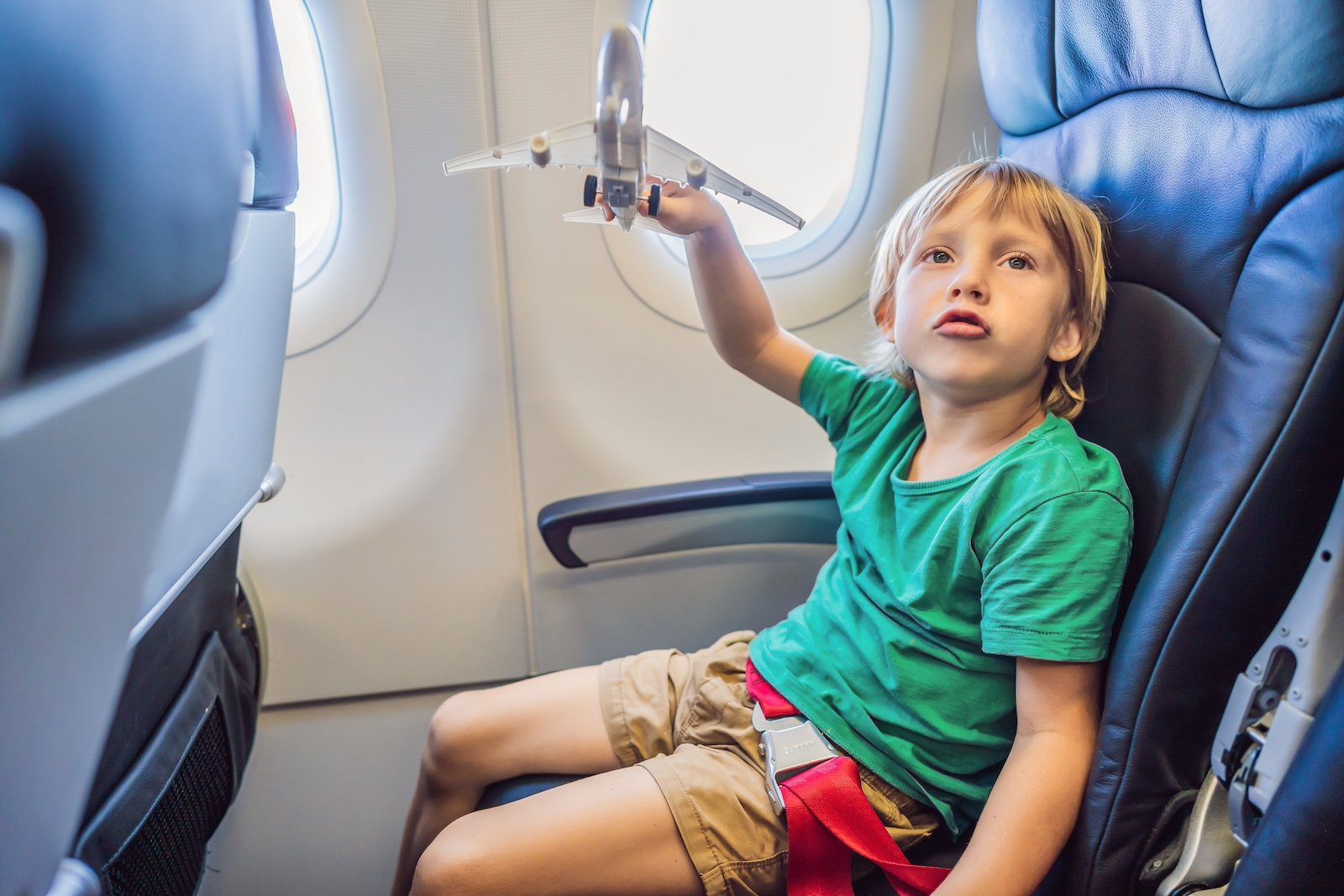
Children on airplanes can be unpredictable, and while many parents do their best to keep their kids entertained and quiet, not all succeed. Uncontrolled tantrums, loud crying, and disruptive behavior can be particularly stressful on long flights. Passengers generally appreciate when parents come prepared with snacks, toys, and activities to keep their children occupied. Additionally, a proactive approach to calming a distressed child can go a long way in maintaining peace in the cabin.
Invasion of Personal Space
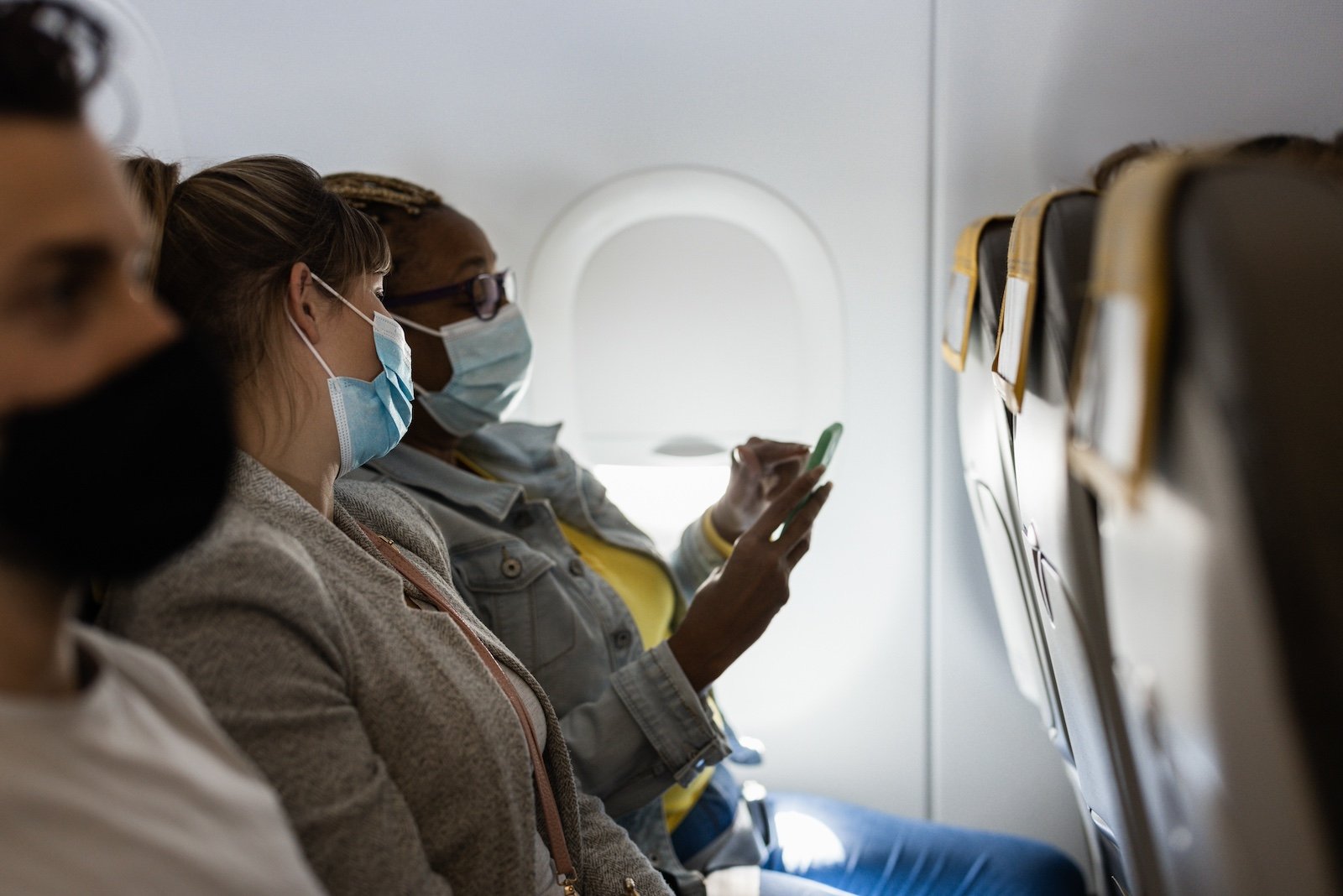
Airplane seats are already cramped, and any invasion of personal space can feel particularly intrusive. This can include leaning too far into a neighbor’s seat, spreading legs too wide, or placing personal items in someone else’s space. Respecting the limited space of others is crucial for a comfortable journey. Small gestures, such as keeping elbows and knees within one’s seat boundaries, can prevent unnecessary discomfort.
Disregarding Cleanliness

Leaving trash behind, spilling drinks, or not cleaning up after oneself are behaviors that contribute to an unpleasant flight environment. Flight attendants work hard to maintain a clean cabin, but passengers also have a responsibility to keep their areas tidy. Using trash bags, cleaning up spills promptly, and disposing of waste properly show respect for the shared space and the crew’s efforts.
Boarding and Deplaning Rudeness

The boarding and deplaning processes can be chaotic, and rude behavior only adds to the stress. Pushing and shoving, not waiting for your boarding group, or standing up and crowding the aisle as soon as the plane lands are all behaviors that irritate fellow passengers. Observing boarding procedures, waiting your turn, and being patient can make these processes more efficient and pleasant for everyone.


